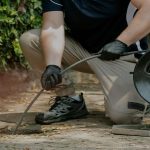Choosing the Best Vacuum Excavation Services for Your Terrain
When it comes to managing underground infrastructure, precision is crucial, and whether you’re installing utilities, accessing underground infrastructure, or conducting repairs, disturbing the earth can pose a challenge. Vacuum excavation services have become the preferred solution for non-destructive digging, offering safety, accuracy, and minimal environmental disruption. Two main techniques are prevalent in the field: hydro excavation and air vacuum excavation, and understanding the strengths of each and how they perform across different terrains is vital to making the right choice for your project.
Understanding Vacuum Excavation Services
Vacuum excavation services are a safer alternative to traditional excavation methods. These services involve the use of high-powered suction equipment to remove soil and debris from a site without causing damage to underground assets like pipes or cables. This method is particularly useful in sensitive areas such as near utilities or environmentally protected zones.
Vacuum excavation is basically divided into two types: hydro excavation and air vacuum excavation. Both are effective, but their performance can vary depending on soil conditions. Knowing which service to use helps avoid unnecessary delays, costs, or complications on-site.
Hydro Excavation
Hydro excavation uses high-pressure water to loosen soil before vacuuming it into a holding tank. This technique is highly effective in hard ground conditions, making it suitable for compacted soil, clay, and frozen ground. The added advantage of hydro excavation is its speed, as it often works faster than air vacuum excavation when working with harder soils.
In areas where the soil includes heavy clay or it is densely compacted hydro excavation can be particularly effective. The water softens the earth, allowing for efficient removal while protecting underground infrastructure. However, the use of water means there is slurry to manage post-excavation, which may require additional clean-up or disposal steps.
Hydro excavation is widely used in large-scale utility projects, septic system installations, and roadside maintenance where speed and precision are essential, and managing wet waste is feasible.
Air Vacuum Excavation
Air vacuum excavation, by contrast, employs compressed air to loosen the soil, which is subsequently collected in a debris tank. One of its key advantages is that the excavated soil remains dry and reusable, which can be beneficial in projects where backfilling is required or where managing wet waste is impractical.
This method is particularly effective in looser soil conditions such as sandy loam or well-drained topsoil, which is common in many coastal and agricultural areas. In such environments, air vacuum excavation can be just as efficient as hydro excavation while offering the benefit of less environmental impact due to the lack of water use.
While air vacuum excavation might be slower in harder or compacted soils, it excels in locations with environmental constraints or where water use is restricted, and it is often the preferred method for excavation in and around tree roots, heritage-listed properties, and shallow utility lines.
Matching the Method to Your Terrain
The choice between hydro excavation and air vacuum excavation depends heavily on the soil type that is present and the project’s needs. For sandy soils or areas requiring dry spoil, air vacuum excavation is often the best choice. The dry spoil can be set aside and reused, which is useful in landscaping or when refilling the dig site.
For clay, compacted ground, or wet conditions, hydro excavation delivers better results due to its ability to cut through dense materials quickly and efficiently. It’s also a more practical option during the cooler months when soil may be harder or frozen in certain regions.
In the diverse landscapes of Australia selecting the right vacuum excavation service requires an understanding of the local soil conditions, and working with a provider that knows the local terrain – such as Clarence Valley Septics in the Clarence Valley region – ensures that your project runs smoothly.
Applications for Hydro and Air Vacuum Excavation
While hydro and air vacuum excavation are both versatile, but they do lend themselves to different types of projects. Hydro excavation is often chosen for deeper trenching, large infrastructure upgrades, or excavation near roadways where quick results are essential. Its ability to tackle hard soil with minimal manual effort makes it ideal for these types of tasks.
Air vacuum excavation is frequently used in environments where minimal disruption is key. It’s common on sites with sensitive vegetation, archaeological significance, or strict water regulations. For instance, maintaining tree health during root exposure is best done by using air vacuum excavation, which gently removes the soil without damaging roots.
Whether it’s inspecting underground services, repairing a water main, or installing a new septic system, selecting the right excavation method ensures safety, efficiency, and environmental responsibility.
Choosing the Right Fit for the Ground Below
Vacuum excavation services have become an essential part of infrastructure work in Australia, offering safe and non-destructive alternatives to traditional digging methods. The decision to use hydro excavation or air vacuum excavation depends on several factors, with soil type being one of the most important. Understanding the nature of your terrain also helps determine which approach will yield the best results.
By choosing a provider with local expertise and a strong understanding of both methods, you’re ensuring the success of your project and the protection of the environment and existing infrastructure.
Partner with Clarence Valley Septics for Trusted Vacuum Excavation Services
At Clarence Valley Septics, we offer expert vacuum excavation services tailored to meet the needs of various soil types and project scopes. Our team understands the complexities of this type of work, and provides solutions that are efficient, safe, and environmentally sound.
Contact us today on 6645 3100 or via our website to discuss your next excavation project.


